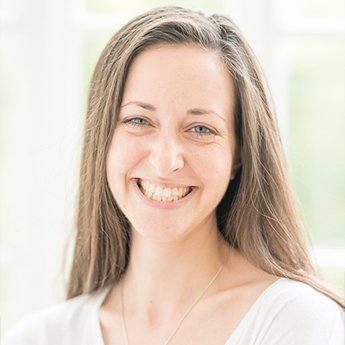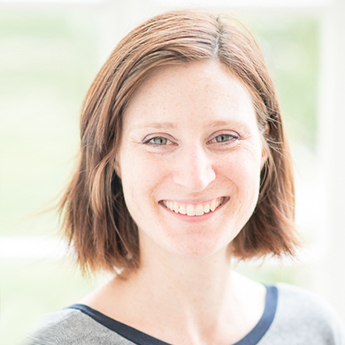Lena Beleke
Lena works as a Concept Designer and Copywriter at communication agency Roth & Lorenz in Stuttgart. She studied communication design at the University of Applied Sciences and Arts in Dortmund in Germany and at Tomas Bata University in Czech Republic. During her studies she became a skilled visual communicator and developed practical and conceptual skills across a variety of media and communication platforms. She mainly focused on photography, graphic design, animation and film. She is an alumni of treibhaus 0.9, Germany´s leading postgraduate program for Concept Designers working in the field of below-the-line marketing. She likes design thinking and develops progressive ideas and concepts that connect brands and people through emotion, active participation and direct encounter. Clients she worked for include Mercedes-Benz Bank, the State Ministry of Baden-Württemberg and the Robert Bosch Stiftung. As a creative Lena is naturally interested in trends and futurology that aim to make our planet a smarter and more sustainable place.
Sabine Domke
Sabine is a desk officer at the German Federal Ministry for Economic Affairs and Energy in the Department of Energy Efficiency. Currently, her main area of work is developing strategies to promote energy efficiency in the buildings sector. Before that, Sabine worked in the Federal Ministries of Transport and Environment as well as the Foreign Office on international and bilateral questions in the fields of energy policy and climate protection for many years. In 2008 she supported the French Ministry of Sustainable Development with regards to the French presidency of the European Union, handing over to the Czech presidency in 2009. Her academic background of “International Business Studies” (Maastricht and Tokyo) and “International Relations” (Berlin) helps her looking at energy policies from various perspectives. For her, the energy challenge consists in finding appropriate solutions to adjust sustainable energy production and societal needs.
Daniel Iglhaut
Daniel works as a consultant in business development in a medium sized company (R&D service provider for the energy utilities in Germany) since early 2013. Within this, he gained very good understanding of the German energy market and the ongoing and deep change of the utilities indicated by the energy turnaround. Among his focuses is innovation management in utilities and the impacts of demographical changes on the German energy market, especially on the financing of the electricity grids. Previously he finished the M.Sc. “European Economic Integration of Central and Eastern Europe” in Leipzig and Warsaw. The master program focused on the ongoing process of the widening of the Union towards the CEE region and its economic implications as well as European law and the functioning of the European Union. Energy policy in German utilities is almost exclusively focusing on national issues. He applied for the CGYPP in order to strengthen the need of a European perspective and the need of cross border cooperation in terms of energy issues.
Tomáš Hájek
Tomáš is responsible for Public Diplomacy and Communication at the Austrian Embassy in Prague. Before joining diplomacy, he was member of the Cabinet of the Czech Minister of Agriculture and also spent several months in the European Commission in Brussels. Tomas graduated from the University of Economics in Prague focusing on EU affairs and diplomacy. During his studies, he spent also few months at Vienna University of Economics and Business. Energy issues belong to his major topics at the Embassy and he believes that the participation at the CGYPP could substantially increase his knowledge about the German concept of energy security. Moreover, he looks forward to meeting inspiring colleagues with different backgrounds from Germany and the Czech Republic. In his leisure time Tomas draws energy from occasional guiding tourists in the mountains in Nordic countries and organising discussions about travelling. He is also co-founder of a civic association „Uličník“ focusing on creative ideas to improve public spaces in Czech towns as well as identifying best practices from abroad.
Filip Jirouš
Filip works as a Consultant in the Policy Department at eclareon, a Berlin-based consultancy focusing on renewable energy and energy efficiency. At eclareon, he analyzes the political, legal and administrative framework conditions for the development of renewable energy across the EU. Filip is responsible for the implementation and management of projects on behalf of the European Commission, the GIZ as well as German federal ministries. Due to his language skills, he is mainly in charge of research and consulting activities covering the countries of Central and Eastern Europe (Czech, Republic, Slovakia, Poland and Bulgaria). Filip studied Eastern European Sciences and Political Science in Berlin and Wroclaw. He is a native speaker of both German and Czech.
Jakub Kučera
Jakub works as an Economics Commentator at RSJ, a Prague-based investment company with interests in the energy industry. In this capacity, he publishes articles on various economic topics, including energy issues. In addition, Jakub is a PhD candidate at Charles University in Prague where he is specialising in the energy policy of the Russian Federation, in particular on the interplay between its energy sector and the economy as a whole. In Jakub´s opinion, markets should play a major role in the energy industry. Unfortunately, today´s prices on the energy markets do not reflect all the costs of energy generation, distribution and consumption. For instance, electricity prices at the Leipzig exchange depend heavily on the cost of power generation, while customers pay for the other costs, such as distribution, on a non-market basis. Not to mention the virtual exclusion from the market system of some energy policy goals, such as foreign-policy issues.
Anna Laugks
Anna works in customer management by 50Hertz, one of the transmission system operators in Germany. She is responsible for the application of the German subsidy for renewable energies and has to deal with the relevant stakeholders in the energy sector. She holds a Master’s degree in Business and Law and studied prior to that Public Management in Berlin. By participating in the CGYPP, she wants to discuss current themes about the energy change in Europe and to have a closer focus on the Czech-German economic and cultural relations.
Katharina Richter
Katharina works as a project coordinator for a non-governmental organisation with a strong focus on research funding in the STEM fields and medicine, where she manages the application and funding processes. She gained her first professional experience by coordinating an interdisciplinary research centre at the Freie Universität Berlin. Katharina studied German studies, political science and sociology in Berlin and Prague. By participating in the CGYPP she seeks to deepen her knowledge in sustainability, and exchange ideas on societal and individual possibilities to actively change the ever growing energy consumption.
Helena Schulzová
Helena works as an analyst and research coordinator at EUROPEUM Institute for European Policy. She graduated from International area studies and American studies at Charles University in Prague where she continues in a doctoral program. She has taught seminars on modern US society and contemporary issues of central Europe both at Faculty of Social Sciences at Charles University. Helena has focuses her research work on topics related to both on US and European energy policies but has also conducted research on various issues including reforms of diplomatic networks in EU member states. Thanks to her work at EUROPEUM, she has been able to take part on projects in Germany, Poland, Ukraine, Bosnia and Armenia. In Europe, energy has been for a long time a puzzle of balance between security – sustainability and economic profit. Energy Union however has a potential to change that and add solidarity to this riddle. Solidarity is however a double-edged sword and requires a lot of responsibility, trust and understanding from all joining parties.
Lukáš Válek
Lukáš follows three main directions in his professional life, at the moment. He is co-founder, manager of voluntary projects and lecturer in non-profit organization KURO Hradec Králove (KURO – Culture and Development in Czech language) which aims to promote voluntary experience as a real work and life experience and it supports and organizes cultural and educational events. The second occupation is related, and it is Regional representative for Erasmus+ for Královehradecky kraj. As a third occupation can be considered research of non-mainstream ways of economy especially time banks. The current topic of CGYPP is very consistent with aforementioned interdisciplinary. It is about cooperation across the fields and borders that good ideas are supported and nourished, and not trampled down into dust of the past. With new sources of energy and new ways of economy, humanity has chance to develop models of both, which would be more humane and safer, decentralizing power to a sustainable framework for future.
Robert Vinický
Robert works for E.ON Czech, where he heads up the Technical Development and Operation Department. In his role he is responsible for Innovation in the area of technical development & testing of products focused on Distributed Energy Products / Energy Solutions (e.g. Batteries, Renewables, Local Energy Systems), E-Mobility charging infrastructure development and Public Lighting business realization. Previously he was Managing director of his own startup and worked in Law Companies in Prague and Berlin, always concentrating on Renewable Energy Sources (PV and Biogas), Clean Mobility and Clean Technology Scouting and Implementation. He decided to join the CGYPP program to connect with interesting people, to discuss and exchange about the many variations Energy in the Age of Globalization. When looking at energy from the global perspective, there are many things to discuss and think about, just like – What will be the price of energy when implementing renewables and new technologies? what will be the prices of energy transmission?
Marta Vojtová
Marta works at the Embassy of the Netherlands, where she supports Dutch businesses in the Czech Republic and works on strengthening ties between Dutch and Czech entrepreneurs. Before, she worked in business associations in Brussels (Eurochambres) and Prague (Czech Chamber of Commerce) as well as in the Czech public sector. She studied international relations in Prague and Copenhagen. She is an avid reader of the print media and if her baby boy allows her any free time she enjoys watching films and TV series such as Borgen or House of Cards. She views the topic of sustainable energy from two perspectives: promoting Dutch business ideas, which very often revolve around the environment and sustainable energy solutions. On the other hand, she has found out in her private life that combining work and a baby requires energy management of a different, but nevertheless demanding sort. In both cases the outcome is similar, since in our world we need to find the most effective solutions for using the energy we have at our disposal without needing to resort to means that damage our environment.












